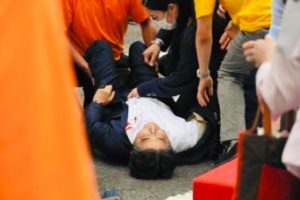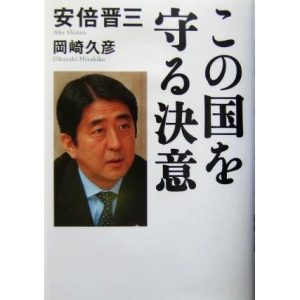 This blog is based on the two most recent articles "A year after Shinzo Abe's departure: The former Abe and conservative powers, who are no longer serving their duty, launch an open attack on the United States, replacement version | Press Activity 1995~ Yasuo Kaji (yasuoy.com) )”, “Did the center of power in the United States dispose of the 'runaway' Abe? After the resignation of the prime minister, the defense of Yasukuni Respect and Putin burst out | Press Activity 1995 ~ Yasuo Kaji (yasuoy.com)”. Here, the author suggested that the possibility that the United States was systematically involved in Abe's assassination cannot be denied. In other words, we now have enough political reasons to kill Abe. In response to Abe's remarks on February 27, 2022, as if he understood Putin's Russia's invasion of Ukraine, a leading lawmaker belonging to the Kishida faction said, "Kishida will become chairman of the G7 summit. It is said that he was furious, saying, "The words and deeds that draw a bow on the prime minister's back." Washington would have been furious with the neoconservatives more than this.
This blog is based on the two most recent articles "A year after Shinzo Abe's departure: The former Abe and conservative powers, who are no longer serving their duty, launch an open attack on the United States, replacement version | Press Activity 1995~ Yasuo Kaji (yasuoy.com) )”, “Did the center of power in the United States dispose of the 'runaway' Abe? After the resignation of the prime minister, the defense of Yasukuni Respect and Putin burst out | Press Activity 1995 ~ Yasuo Kaji (yasuoy.com)”. Here, the author suggested that the possibility that the United States was systematically involved in Abe's assassination cannot be denied. In other words, we now have enough political reasons to kill Abe. In response to Abe's remarks on February 27, 2022, as if he understood Putin's Russia's invasion of Ukraine, a leading lawmaker belonging to the Kishida faction said, "Kishida will become chairman of the G7 summit. It is said that he was furious, saying, "The words and deeds that draw a bow on the prime minister's back." Washington would have been furious with the neoconservatives more than this. From the containment of the Soviet Union during the Cold War to the current encirclement of China, Japan has been used by the United States as the front line of geopolitical containment of Eurasia. However, the U.S. Forces in Japan had two sides. The Japan-U.S. Security Treaty and the U.S. forces stationed in Japan had the role of preventing a repeat of Japan's militaristic aggression policy, as well as defending Japan, which had become a military void due to the abandonment of military power stipulated in the Peace Constitution. This is the so-called double containment measure. This has been repeatedly testified by those in charge on the American side. The representative Japanese person who was confined was Shinzo Abe, the grandson of war criminal suspect Nobusuke Kishi.
Note: Reversal of Conservative "Mainstream" and US Pressure Anti-Communist Powers and Seiwakai Rule 1 | Press Activity 1995~ Yasuo Kaji (yasuoy.com)
Bruce Cummings explains America's "policy of containment", famously advocated by George Kennan, about the basic American forces after World War II: “It was not only the communist adversaries, but also the allies of capitalism. The two secret faces were directed at the defeated nations, Germany and the containment of Japan."
During a secret meeting in China in October 1971, Henry Kissinger, who was an aide to the President of the Nixon administration, was told by Premier Zhou Enlai, ``The United States did not know that the Soviet Union had sent troops to Czechoslovakia in 1968. I didn't admit it, so why are you stationing US troops in Japan?"
To Zhou Enlai, Kissinger said, "If we were to withdraw from Japan, Japan would have enough plutonium due to the peaceful uses of nuclear energy, and it would be the undesirable Japanese nuclear program that would take the place of our withdrawal." Yes, we are against it.” "If Japan embarked on a large-scale rearmament, it would restore the traditional relationship between China and the United States [the World War II alliance].
I will do my best to hold back the defense of the four major islands, but if I fail to do so, I will work with other nations to block the expansion of Japan's power."
As I will touch on in detail in a separate article, Abe has been singled out as a politician who can allow the exercise of the right to collective self-defense under the current Constitution. Before the outbreak of the Iraq War in 2003, the US neoconservatives planned to "strengthen Japan's armaments under the control of the United States," and launched the Seiwakai Abe administration following the Koizumi administration.
Washington will direct the Abe far-right government toward a major shift in Japan's post-war defense policy, incorporating Japan into the ring of the North Atlantic Treaty Organization (NATO). In 2015, the new security legislation accompanying the acceptance of the exercise of the right to collective self-defense, which allows the Self-Defense Forces to be placed under the command of the US military, will come into effect.
 Foreign Affairs bureaucrat Hisahiko Okazaki was one of the people who instilled in Abe the necessity of exercising the right to collective self-defense. Okazaki, who was also a member of the U.S. think tank Center for International Strategic Studies (CSIS), which would later be called the control tower for Japan, was aware that Abe was in a delicate position where the Kishi-Abe line is at the forefront of the containment of Japan, the defeated nation of the United States. It is said that Okazaki used to admonish Abe, saying, "Never go against the Anglo-Saxons (US and UK)."
Foreign Affairs bureaucrat Hisahiko Okazaki was one of the people who instilled in Abe the necessity of exercising the right to collective self-defense. Okazaki, who was also a member of the U.S. think tank Center for International Strategic Studies (CSIS), which would later be called the control tower for Japan, was aware that Abe was in a delicate position where the Kishi-Abe line is at the forefront of the containment of Japan, the defeated nation of the United States. It is said that Okazaki used to admonish Abe, saying, "Never go against the Anglo-Saxons (US and UK)." During the Liberal Democratic Party presidential election held in September 2012, Okazaki was listed as one of the founders of the ``Civilian Volunteer Group Seeking Prime Minister Shinzo Abe''. In 2014, under the second Abe administration, the exercise of the right to collective self-defense was controversially accepted in the Diet, and Okazaki died of illness after witnessing it being accepted as constitutional. After Okazaki's death, it seems that there is no one to discourage Abe from approaching Putin.
(Continue)
